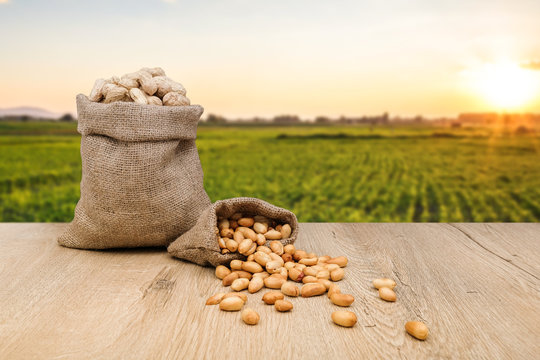
When it comes to versatile and nutrient-packed snacks, peanuts often top the list. They’re affordable, delicious, and incredibly beneficial for your health. Whether you enjoy them as a crunchy snack, smooth butter, or an ingredient in your favorite recipes, peanuts offer a range of health benefits that are hard to beat. In this blog post, we’ll dive into the numerous benefits of peanuts and why they deserve a place in your daily diet.
1. Packed with Protein for Muscle Building
Peanuts are an excellent plant-based source of protein, making them a popular choice for vegetarians, vegans, and anyone looking to increase their protein intake. With about 7 grams of protein per ounce (about a handful), peanuts can help you build and repair muscle after workouts or during times of growth.
Why this matters:
- Muscle growth: Whether you’re an athlete or someone trying to maintain lean muscle mass, the protein in peanuts supports muscle repair and growth.
- Satiety: Protein is known to increase feelings of fullness, which helps reduce overall calorie intake and aids in weight management.
2. Rich in Healthy Fats for Heart Health
Despite their bad reputation in the past, fats are essential for our bodies, and peanuts are rich in the good kind: monounsaturated and polyunsaturated fats. These healthy fats help to lower bad cholesterol (LDL) and increase good cholesterol (HDL), reducing the risk of heart disease.
Why this matters:
- Heart protection: The healthy fats in peanuts can improve cardiovascular health by reducing inflammation and keeping arteries clear.
- Reduced stroke risk: Consuming healthy fats regularly is linked to a lower risk of strokes.
3. A Great Source of Vitamins and Minerals
Peanuts are loaded with essential vitamins and minerals, including:
- Vitamin E: An antioxidant that protects cells from damage.
- Magnesium: Important for muscle function, energy production, and bone health.
- Potassium: Helps regulate blood pressure and supports heart function.
- Folate (Vitamin B9): Essential for DNA production and repair, especially important for pregnant women.
Why this matters:
- Bone health: Magnesium and potassium are crucial for maintaining strong bones and overall musculoskeletal health.
- Antioxidant support: Vitamin E helps protect your skin from aging and supports immune function.
4. Promotes Weight Loss and Maintenance
It might sound counterintuitive since peanuts are calorie-dense, but research suggests that including peanuts in your diet can actually help with weight management. The high protein, fiber, and healthy fats in peanuts contribute to feelings of fullness, reducing the temptation to overeat.
Why this matters:
- Calorie control: Peanuts can help you feel satisfied longer, preventing snacking on empty-calorie junk foods.
- Metabolism booster: The combination of protein and healthy fats helps sustain energy levels and supports a healthy metabolism.
5. Lowers Risk of Diabetes
Peanuts have a low glycemic index (GI), meaning they don’t cause sharp spikes in blood sugar levels. This makes them an excellent snack choice for people with diabetes or those looking to manage their blood sugar. Additionally, peanuts are rich in magnesium, which is linked to improved insulin sensitivity.
Why this matters:
- Blood sugar stability: Eating peanuts can help prevent blood sugar fluctuations, reducing the risk of developing type 2 diabetes.
- Improved insulin response: Magnesium helps regulate blood sugar levels by improving insulin sensitivity.
6. High in Antioxidants for Disease Prevention
Peanuts are surprisingly rich in antioxidants, including resveratrol, a compound also found in red wine. These antioxidants help combat oxidative stress in the body, which can lead to chronic diseases like cancer, heart disease, and cognitive decline.
Why this matters:
- Cancer prevention: Antioxidants help protect cells from damage that can lead to cancer development.
- Cognitive health: Consuming foods rich in resveratrol may support brain health and reduce the risk of Alzheimer’s disease.
7. Supports Digestive Health
Peanuts are a great source of dietary fiber, which is essential for maintaining a healthy digestive system. Fiber helps regulate bowel movements, prevent constipation, and promote the growth of beneficial gut bacteria.
Why this matters:
- Gut health: A high-fiber diet supports a balanced microbiome, which is linked to improved immunity and overall well-being.
- Digestive regularity: Fiber aids in keeping the digestive system functioning smoothly and preventing discomfort.
How to Add Peanuts to Your Diet
Incorporating peanuts into your diet is easy, thanks to their versatility. Here are some simple ways to enjoy the benefits of peanuts:
- Snack on roasted peanuts for a quick protein boost during the day.
- Spread peanut butter on whole-grain toast or add it to your smoothies for a creamy texture.
- Add peanuts to salads for a crunchy, nutritious topping.
- Use peanut butter in sauces for dishes like stir-fry or noodle bowls.
- Enjoy peanut butter energy balls as a convenient, healthy snack on-the-go.
Final Thoughts: Peanuts as a Superfood
Peanuts are not just a tasty snack—they are a powerhouse of nutrition that supports heart health, muscle repair, and weight management, while also providing vital vitamins and minerals. Incorporating peanuts into your daily diet can lead to long-term health benefits, especially when consumed in moderation as part of a balanced lifestyle.
So, the next time you’re looking for a quick and nutritious snack, reach for a handful of peanuts—they might just be the superfood your body needs!
